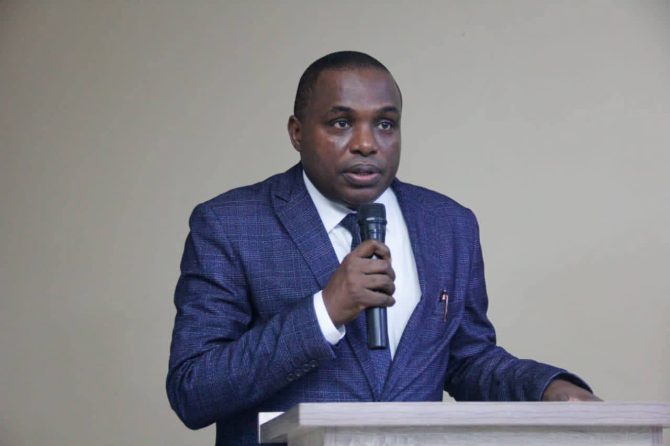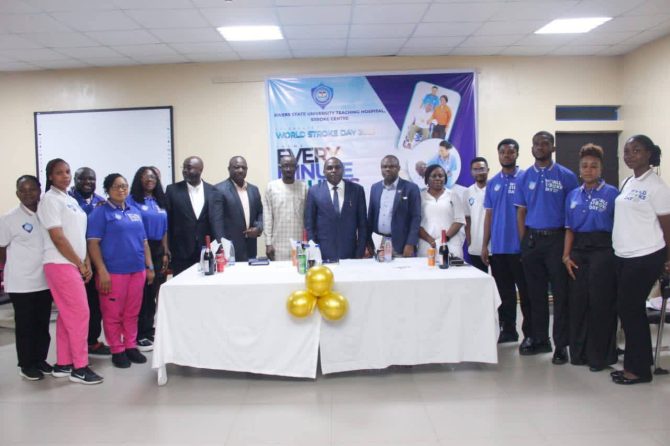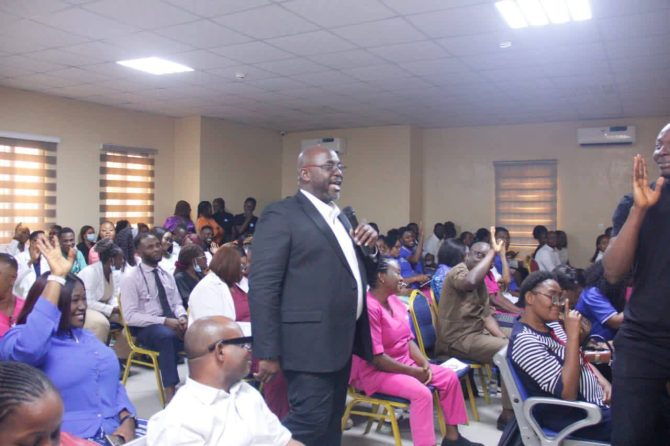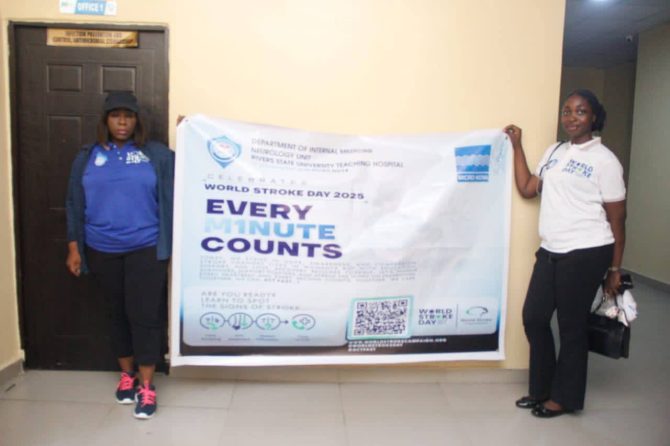Port Harcourt, 31 October 2025 — The Rivers State University Teaching Hospital (RSUTH) has reaffirmed its commitment to tackling stroke in Rivers State through awareness, prevention, and improved clinical response, during a robust World Stroke Day programme held under the global theme “Every Minute Counts.”
The event brought together clinicians, hospital management, pastors, media personnel, and community representatives for a full day of education, commitment, and practical planning aimed at reducing the burden of stroke across the state and beyond.
Delivering the keynote address, Dr. Ernest Nwazor, Consultant Physician and Neurologist, and Head of the Neurology Unit/Stroke Centre at RSUTH, emphasized that stroke is a medical emergency requiring rapid recognition and treatment to save brain function and lives.
He reiterated the importance of the FAST and expanded BE FAST acronyms—Facial droop, Arm weakness,
Speech difficulties, Time to call for help.
He also urged the public to “know your numbers, check your blood pressure, sugar level and cholesterol regularly.
The Chief Medical Director, Professor Chizindu Alikor, proudly highlighted the progress of the hospital’s Stroke Centre, officially commissioned in July 2024, as one of the few dedicated stroke facilities in Nigeria.
He expressed gratitude to Governor Siminalayi Fubara for his administration’s support, which enabled the centre’s establishment and ongoing functionality.
Since its formal opening in July 2024, several patients have benefited from specialized stroke care, with many reporting improved recovery outcomes,a testament to the dedication of the neurology and nursing teams running the unit.
Key Outcomes of the Programme
YouPrevention remains paramount. Clinicians stressed that uncontrolled hypertension is the leading modifiable risk factor for stroke in the region. Other key contributors include diabetes, obesity, sedentary lifestyles, smoking, and environmental pollution.
System gaps identified. Participants highlighted delayed hospital presentation, poor transport and referral systems, high imaging costs, limited access to thrombolytic therapy, shortage of specialists, and scarce rehabilitation services as barriers to better stroke outcomes.
Practical commitments. Hospital management announced a staff-wide stroke and hypertension prevention programme, alongside the creation of a multidisciplinary implementation team. The team will be inaugurated on Tuesday, 4 November 2025, at 9:00 a.m., and will oversee workplace screening, regular exercise sessions, and community outreach through churches and organizations.
Clinical Realities and the Way Forward
Speakers emphasized that stroke is largely preventable and treatable when patients act quickly. Early recognition, rapid transport to a stroke-ready facility, timely imaging, and, where available, thrombolysis or thrombectomy can significantly improve outcomes.
However, they noted that many Nigerian patients still arrive at hospitals days after symptom onset—well beyond the window for effective intervention. The call was for combined personal, institutional, and policy action: maintaining healthy lifestyles, improving hospital protocols, funding emergency services, and implementing a national stroke policy.
Closing Appeal
RSUTH concluded the event with a call to every citizen: learn the FAST/BE FAST signs, monitor blood pressure regularly, and act immediately if stroke symptoms appear.
As one speaker summarized, “Every Nigerian has the power to act fast and stop stroke.”





Leave a reply